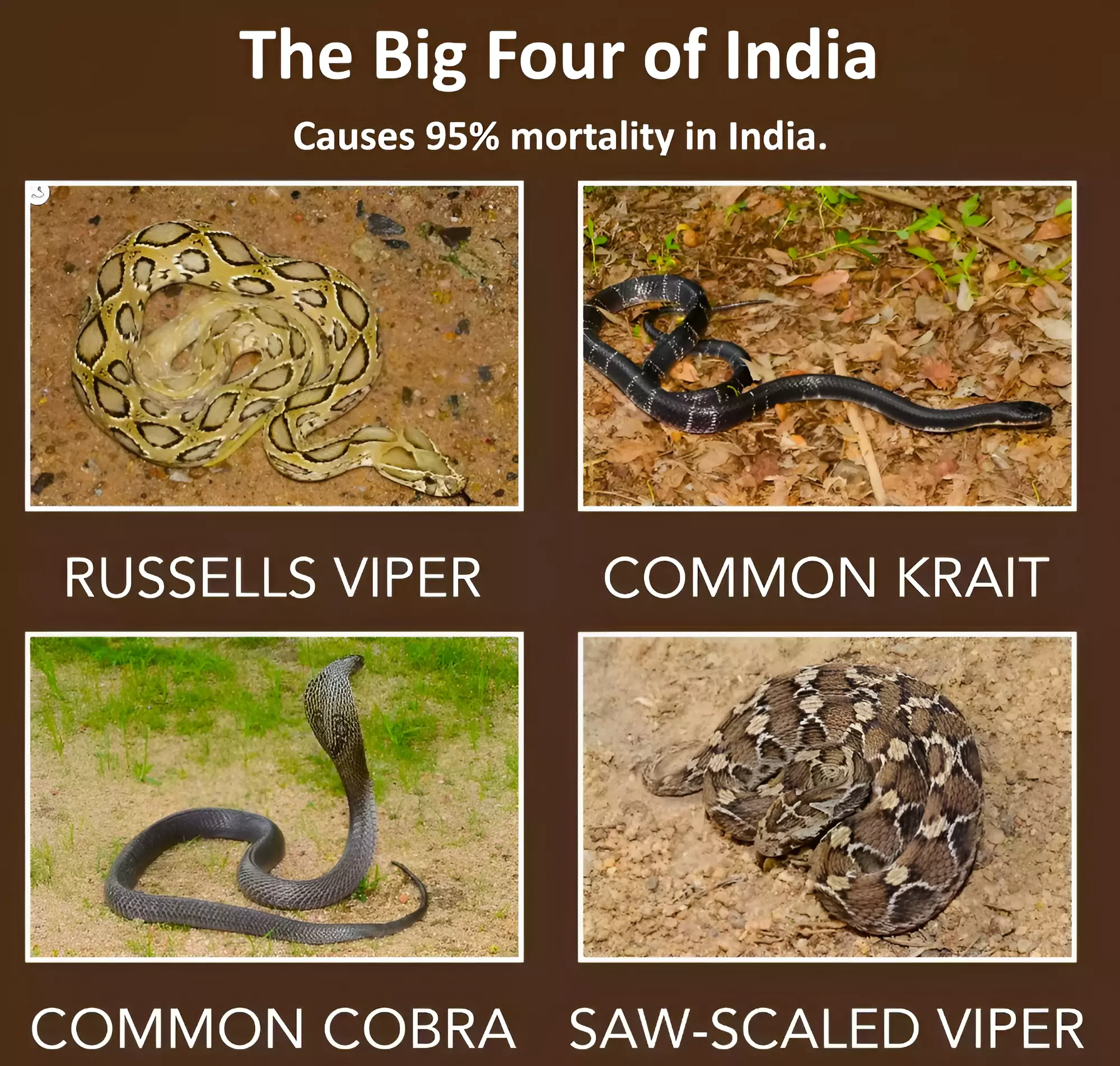![]() 13 Mar 2024
13 Mar 2024
The Union Health Secretary, introduced the National Action Plan for Prevention and Control of Snakebite Envenoming (NAP-SE) in India.

Snakebite envenoming
Snakebites cases in India
|
|---|
News Source: PIB
| Must Read | |
| NCERT Notes For UPSC | UPSC Daily Current Affairs |
| UPSC Blogs | UPSC Daily Editorials |
| Daily Current Affairs Quiz | Daily Main Answer Writing |
| UPSC Mains Previous Year Papers | UPSC Test Series 2024 |
<div class="new-fform">
</div>